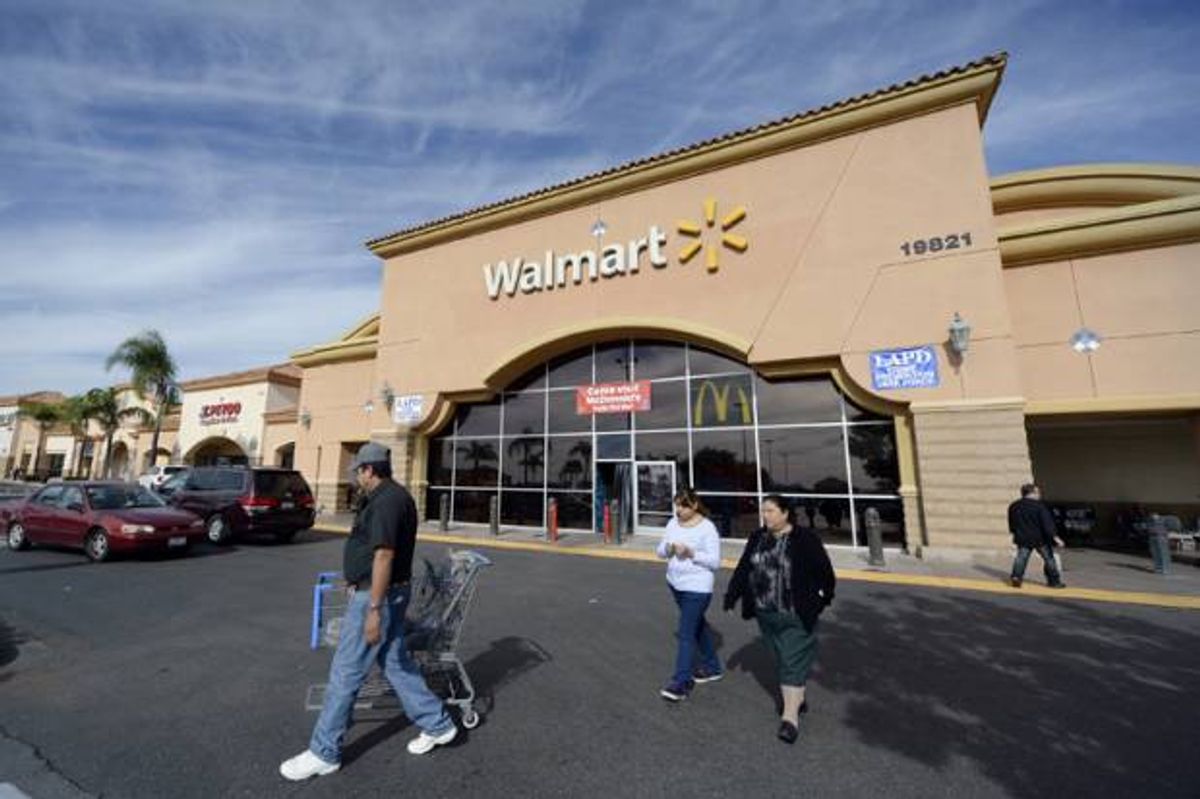 The FDIC estimates there are 10 million people living in the U.S. who do not have a bank account — that’s one out of every 13 households. Nearly 33 percent of people living in Starr County, TX can’t write a check. In one census district in Savannah, GA, over 42 percent of residents are unbanked. The unbanked are usually poor, often minorities, and find themselves shunned by banks that can’t make money off them. Typically, they end up turning to predatory check cashers and payday lenders. Many also feel a great sense of social division between themselves and those who have bank accounts.
The FDIC estimates there are 10 million people living in the U.S. who do not have a bank account — that’s one out of every 13 households. Nearly 33 percent of people living in Starr County, TX can’t write a check. In one census district in Savannah, GA, over 42 percent of residents are unbanked. The unbanked are usually poor, often minorities, and find themselves shunned by banks that can’t make money off them. Typically, they end up turning to predatory check cashers and payday lenders. Many also feel a great sense of social division between themselves and those who have bank accounts.
The crash of 2008 exacerbated America’s growing problem of the unbanked, as many people faced financial ruin and the U.S. saw an increase in distrust of the banking industry. Some people have turned to credit unions, but these institutions generally do not actively recruit lower-income clients, many of whom may be unfamiliar with their services.
There is a quite reasonable way to address the issue of the unbanked, namely, public banking. As Elizabeth Warren has noted, bringing back public post office banks is a particularly good strategy, since the physical and operational structure already exists, and low-income people are comfortable with post offices, which they can usually access easily.
But of course, that idea does not fill the coffers of a giant corporation. Enter Walmart.
For years, big retailers smelling opportunity have been trying to figure out ways to offer banking services to low-income people as a way of boosting in-store sales. Walmart has been pushing hard to get into the banking business, but the retail goliath has been held back from obtaining a U.S. bank charter by a combination of banking industry players, union leaders, activists, political opponents, and experts who have warned that allowing Walmart to bank is a dangerous abandonment of the separation of banking from other forms of commerce, and that it opens the door to too-big-to-fail issues and potential taxpayer bailouts.
Walmart has been denied a charter, which would give it protection from the FDIC, but executives have found the chance to make money by providing financial services to a captive market of struggling, relatively unsophisticated shoppers just too tantalizing to abandon. Gradually, Walmart expanded services to customers that did not require a charter. For example, it created “money centers” where people could do things like cash checks or purchase prepaid debit cards (see complaints about these cards on Ripoff Report).
Last week, Walmart won a major victory in its quest to become a bank by partnering with Green Dot to roll out starter checking accounts. Proclaiming its desire to assist low-income America, Walmart announced that the accounts will have no overdraft fees or minimum account balances. Any adult customer who passes an identity-verification screening can get an account, without a credit check or any other form of screening.
Of course, when you read the fine print, all of this is not exactly free: to open an account, you have to buy a $2.95 “starter kit” from Walmart. There's also a minimum deposit of $20 required. A visit to an out-of-network ATM will get you a $2.50 charge, and customers who do not keep a balance of $500 a month will get hit with a fee of $8.95. This last bit is especially worrying: if you suddenly lose your job, you can quickly rack up burdensome fees.
Is it better than what the big banks offer? Yes, but let’s not think for a moment that Walmart has interest in anything but the bottom line. Walmart is the company that famously mooches off the U.S. taxpayer by dumping upon us the costs of healthcare and other social services its poorly paid employees can’t afford. It's the company that regularly violates the rights of its workers by locking them in stores overnight, stealing their wages, engaging in sex discrimination, and denying meal breaks. It's the company that took corruption to spectacular heights when it decided to bribe its way into Mexican markets.
As Demos senior fellow Wallace Turbeville has observed, there’s a big difference between Walmart and the U.S. post office: Walmart has incentives to squeeze disadvantaged customers who have little bargaining power. The post office has a huge geographical advantage over Walmart: there are 31,000 USPS locations and offices compared to Walmart’s 4,807 in the U.S., and for people living in rural areas, the post office is particularly convenient. Many other countries have post office banking, including Japan, Switzerland and the UK, and in fact, the USPS offered savings accounts until 1967 (deposits peaked at nearly $3.4 billion in 1947).
Plus, people actually want to bank at the post office: Senator Warren’s endorsement of the idea was followed by a poll showing broad public support, with 74 percent of 1,000 adults surveyed reporting that they had at least a “somewhat favorable” opinion of the notion. To offer bank-like services, including check cashing, bill payment and loans, the post office would not need a banking charter.
What’s standing in the way of post office banking products is mostly political. Unfortunately, congressional approval would be required in order for the idea to move forward. Republicans bent on strangling the public sector stand in violent opposition, along with members of both parties who receive money from the banking industry, and naturally, Walmart.



Shares